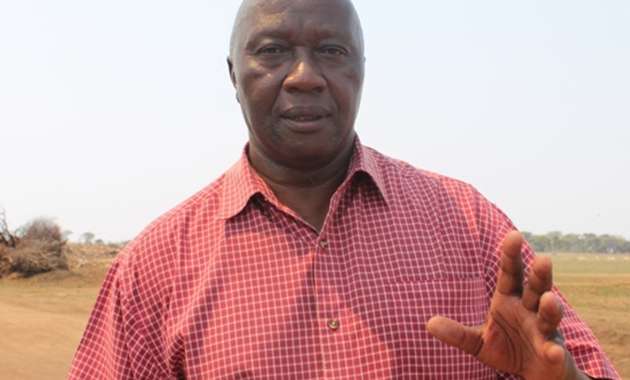Arda to launch pecan nut project near Bulawayo

Martin Kadzere Senior Business Reporter
The Agriculture and Rural Development Authority (Arda) will soon launch a pecan nut project near Bulawayo, as it embarks on production of the high value commodity. ARDA chairman Basil Nyabadza, this week said the authority had secured a partner for the project and was looking at planting 80 000 trees on the farm.
Pecan nuts are a product of the hickory tree, also known as Carya illinoinensis.
The trees are native to central and southern and northern America and were a food source of native Americans for centuries before the arrival of settlers, according to SeedGuide Info, a website, which provides information on history and characteristics of various seeds.
The plants were not domesticated until the 17th century, when the first plantations were established in Mexico.
Raw pecans can be salted or sweetened to make snacks.
They can be sprinkled over desserts, particularly sundaes and ice creams. They are also widely used in confectionery. Pecan nut butter is a popular spread for breads and toast.
They can be processed to make pecan edible pressed oil. The production of pecan trees plantations requires long-term commitment as it takes about seven to eight years before harvesting.
“We are going to launch the project by end of next month at our Bulawayo farm,” said Mr Nyabadza. “It is a crop, which has potential to generate foreign currency given its growing demand on the global markets. Securing investors in such long term projects highlights renewed confidence the investors have in the new dispensation.”
Mr Nyabadza said after launching the project at the Bulawayo farm, ARDA would establish another plantation in Matabeleland North, while the authority was also exploring a macadamia project in Manicaland.
“Its diversification from our traditional crops,” said Mr Nyabadza.
Already, a combined 140 hectares of the pecans trees aged between 2 to 8 years have already been established in Matabeleland South.
SeedGuide.Info said the trees can live and produce nuts for hundreds of years, if they are in a favourable temperate climate and well cared for. Several old pecan orchards have been continuously producing through several generations of cultivation.
The trees are deciduous, dropping their leaves in the winter to conserve energy and developing fresh growth in the spring. Over the past few years, ARDA has successfully transformed most of its estates which had been lying idle due to viability challenges.
The United States has long dominated the global pecan landscape as well as the global pecan market.
While North America is the largest grower of pecans in the world producing more than 80 percent of the world’s pecan supply, it is the American Pecan companies that handle, process, bag and shell the majority of the world’s pecan supply.
From 2016 to 2017 pecan export values increased a staggering 30 percent overall. In-shell pecans rose 27 percent over the previous year from a total global export value of $240 million in 2016 to a total of $303,6 million in 2017.
Shelled pecans had an even better year, rising a massive 33 percent from a total global export value of $264 million in 2016 to $351 million.
The global demand for pecans is expected to continue rising in the foreseeable future as producers strives to increase supply.
Growing pecan nuts requires long term commitment and capital as it take up to eight years to see a return. At least $4 000 is required to establish a hectare, according to experts. — Additional reporting by Pecan Nut Report.











Comments